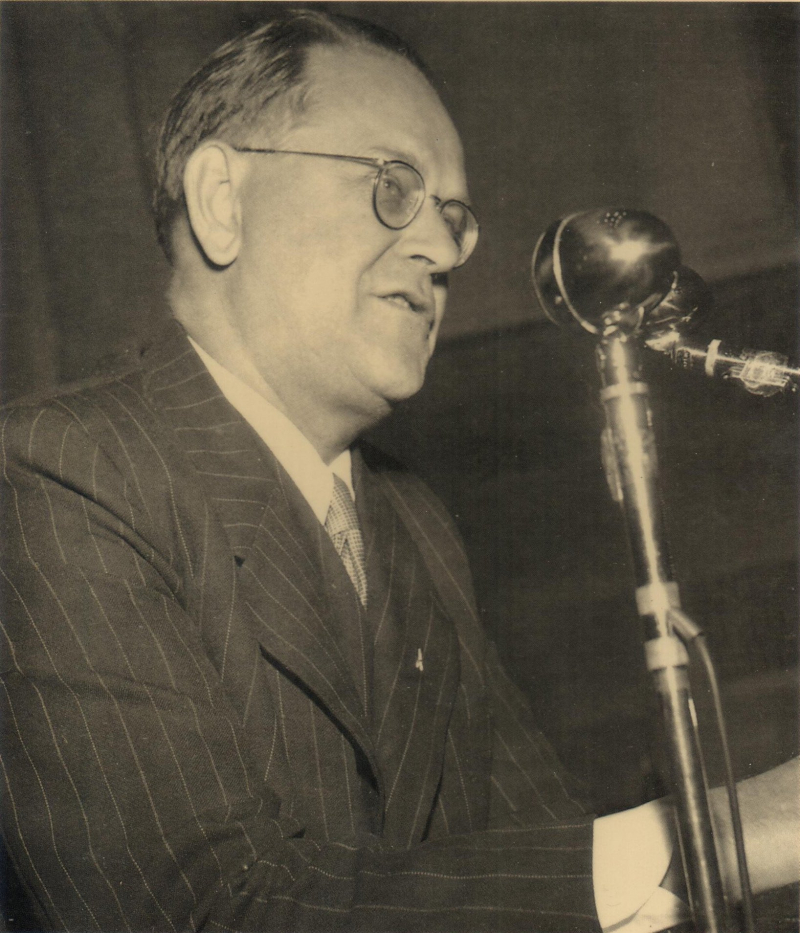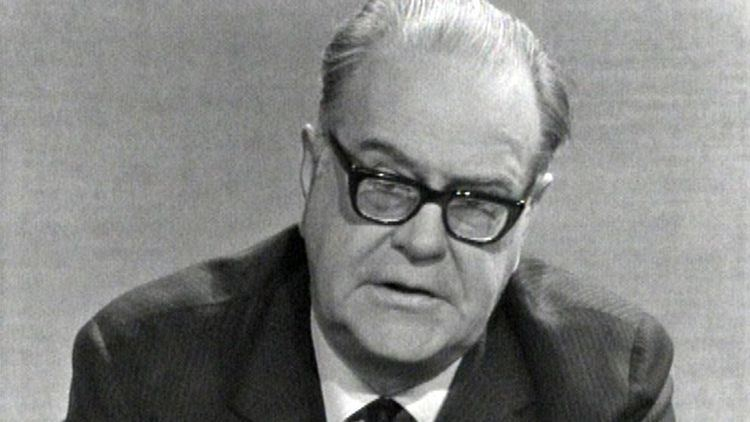Tage Fritjof Erlander
Tage Fritjof Erlander (13 June 1901 – 21 June 1985) was a Swedish politician who served as the country's Prime Minister from 1946 until 1969. He was the leader of the Swedish Social Democratic Party and served as Prime Minister for 23 years, the longest in any democracy. As a result, Erlander became renowned as "Sweden's Longest Prime Minister."
After joining the World War II coalition government in 1944, Erlander unexpectedly climbed to the leadership after the death of Prime Minister Per Albin Hansson in October 1946, keeping the Social Democrats as the country's major party. Erlander, known for his moderation, pragmatism, and self-irony, frequently sought approval from the liberal-conservative opposition for his policies, effectively abandoning all pretenses of broad-scale nationalizations while instituting reforms such as universal health insurance, pension additions, and a growing public sector, while stopping short of raising tax levels above the average OECD levels at the time. Income taxes in Sweden were lower than in the United States until the 1960s.
Erlander led a Social Democratic minority government for the majority of his time in power. Instead, from 1951 to 1957, he led a coalition with the Farmers' League. For the most part, the Social Democrats retained a plurality of seats in the upper chamber, allowing Erlander to remain in power following the 1956 national election when right-wing parties obtained a majority. This outcome was then reversed by a hasty election in 1958.
In foreign policy, he maintained strict neutrality while amassing one of the world's most impressive armed forces (surpassed only by the United States, the Soviet Union, and Israel in terms of per-capita spending), making the Swedish Air Force the third largest in the world, while ultimately rejecting nuclear capability, signing the Nuclear Non-Proliferation Treaty in 1968. Erlander's tenure coincided with the post-World War II economic development known in Sweden as the record years, during which Sweden's economy grew to become one of the ten strongest in the world, and it later joined the G10.
In the 1968 general election, he secured his seventh and most successful triumph, with the Social Democrats capturing an absolute majority of the popular vote as well as seats in the lower chamber. The next year, amid a period of considerable constitutional reform, Erlander resigned and was followed by his long-time protégé and friend Olof Palme.









